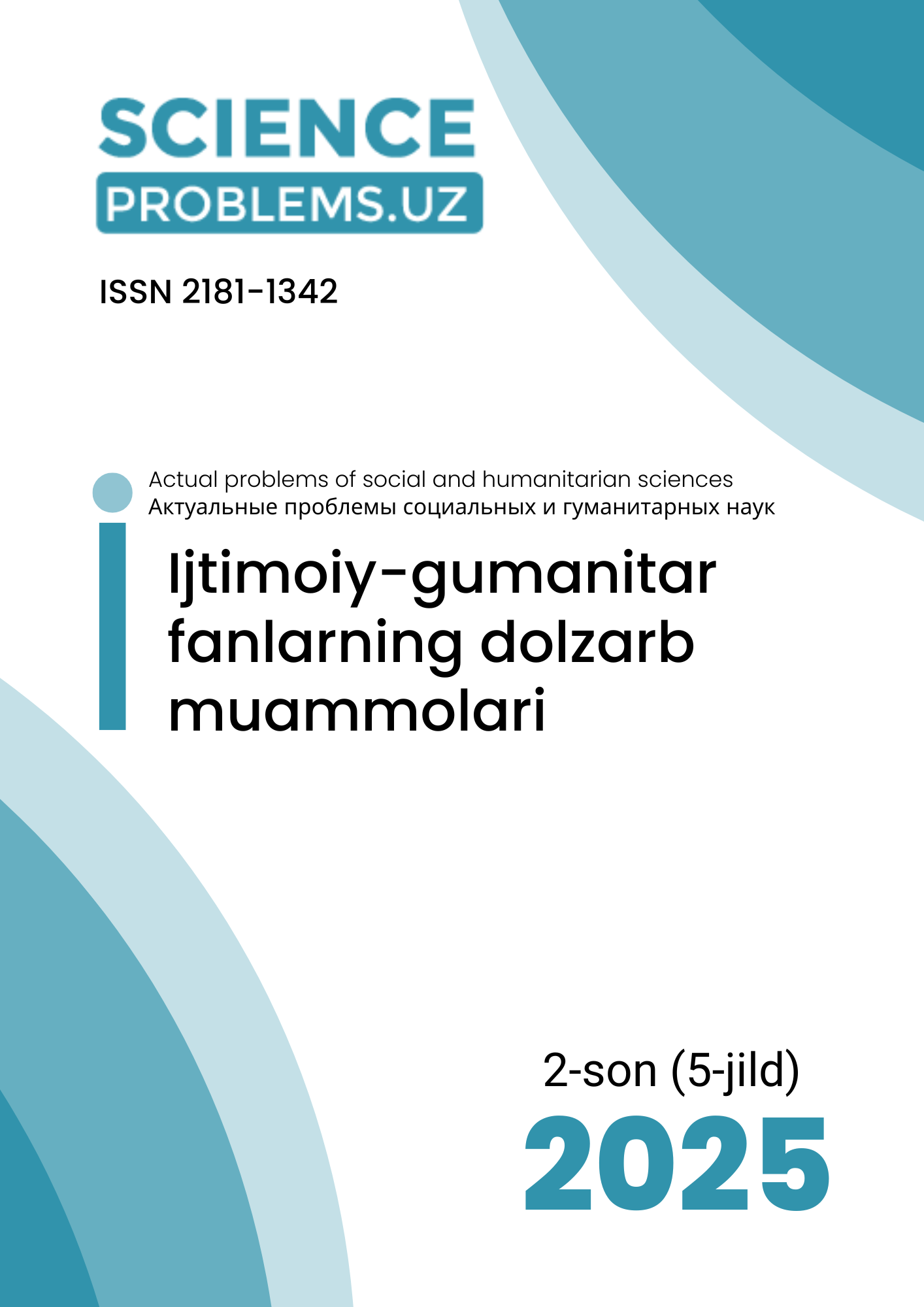INGLIZ VA OʻZBEK TILLARIDAGI OTA KONSEPTINING CHOGʻISHTIRMA TAHLILI
Kalit so'zlar
https://doi.org/10.47390/SPR1342V5I2Y2025N60Kalit so'zlar
ota, konsept, leksika, lingvokulturologiya, frazeologiya, semantika, madaniyat, qiyosiy tahlil.Annotasiya
Mazkur maqolada ingliz va oʻzbek tillaridagi «ota» konseptining lingvistik va madaniy xususiyatlari tahlil qilinadi. Ota konsepti nafaqat biologik ota shaklini, balki ijtimoiy va madaniy nuqtai nazardan ham muhim ahamiyatga ega boʻlib, bu tushuncha turli tillarda va madaniyatlarda turlicha talqin qilinadi. Tadqiqotda ingliz va oʻzbek tillaridagi ota tushunchasining leksik, semantik va frazeologik xususiyatlari, shuningdek, uning lingvokulturologik jihatlari oʻrganiladi. Ushbu tahlil ota konseptining ijtimoiy-psixologik ahamiyatini va uning ikki tilga asoslangan madaniyatdagi oʻrni va roli qanday ifodalanishini aniqlashga qaratilgan.
Manbalar
1. Brown P., & Levinson, S. C. Politeness: Some Universals in Language Usage. Cambridge University Press. 1987.
2. Hall, E. T. Beyond Culture. New York: Anchor Books. 1989.
3. Lakoff G. Women, Fire, and Dangerous Things: What Categories Reveal About the Mind. Chicago: University of Chicago Press. 1987.
4. Mirzayeva N. «Ota-ona konseptsiyasi va uning oʻzbek tilida ifodalanishi.» Til va adabiyot jurnali, 3(2), 56-63. 2020.
5. Norman C. Fatherhood and Family in the English-Speaking World. Routledge. 2010.
6. Sodiqova G. Oʻzbek tilida frazeologik iboralar va ularning semantik tahlili. Toshkent: Fan. 2015.
7. Wierzbicka A. Understanding Cultures Through Their Key Words: English, Russian, Polish, German, and Japanese. Oxford University Press. 1997.
8. Xudoyberganova S. O‘zbek xalq maqollari va ularning semantik xususiyatlari. Termiz: Ma’naviyat. 2015.
9. Madalov, N. E. (2020). Linguopsychological changes in an adult when learning a foreign language. ISJ Theoretical & Applied Science, 10(90), 417-421.
10. Madalov, N. E. (2019). Types of transformations in the process of translation. In Наука и инновации-современные концепции (pp. 111-115).
11. Madalov, N. E., & Abduvaitov, A. S. (2019). Euphemisms in English and their Russian equivalents. In Наука и инновации-современные концепции (pp. 59-61).
12. Janikulovna, D. S., Botirjonovna, M. F., Barno, O., & Sadokat, A. (2019). The role of foreign culture in learning a foreign language. Наука, образование и культура, (6 (40)), 44-45.
13. Samixdjonovna, M. F. (2023). PEDAGOGIKADA TERMINALOGIYA. Новости образования: исследование в XXI веке, 1(9), 1226-1228.
14. Feruza, M. (2023). IMPROVE LANGUAGE SKILLS USING AUTHENTIC WORKS. European International Journal of Multidisciplinary Research and Management Studies, 3(05), 163-167.
15. Mirzayeva, F. (2023). STRUCTURAL-SEMANTIC CHARACTERISTICS OF ENGLISH AND UZBEKIN PROVERBS WITH NOUN COMPONENTS. Бюллетень педагогов нового Узбекистана, 1(11), 84-87.
16. MIRZAEVA, F. (2024). PROVERB AS AN OBJECT OF LINGUISTIC RESEARCH. World Bulletin of Social Sciences, 33, 82-87.








